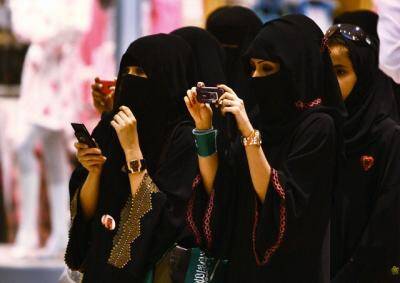“For peace comes dropping slow,” wrote W. B. Yeats in “The Lake of Innisfree.” For the women of Saudi Arabia, he might have said the same thing about change. Progress in the fight for social and political rights is glacial, especially when it comes to pushing back against the long-dominant cultural norm of “male guardianship,” whereby decisions affecting women are made without their input or collaboration.
In 2015 Saudi women managed to acquire the right to vote (see Am., 1/4) in a limited fashion through a decree by the late King Abdullah—but that did not go far enough for them. They want to have rights like modern women everywhere, including the rights to drive and to work. To that end an activist named Hala Al-Dosari has put the power of social media to work to persuade King Salman to end the practice of male guardianship. Almost 15,000 signatures have been collected after a Twitter campaign with the hashtag #IAmMyOwnGuardian.
There are signs for hope. The deputy crown prince, Mohammed bin Salman, is reportedly more receptive to the winds of change. He has a plan called Saudi Arabia’s Vision 2030. Under this initiative, Saudi women will have a larger role, especially in the labor market. And while some Islamic clerics are firmly against such change, there are others who are willing to consider it, saying that guardianship has more to do with governmental policy than religious dictates. Change, however slow, will be welcome when it comes—and for Saudi women, it can not be fast enough.








